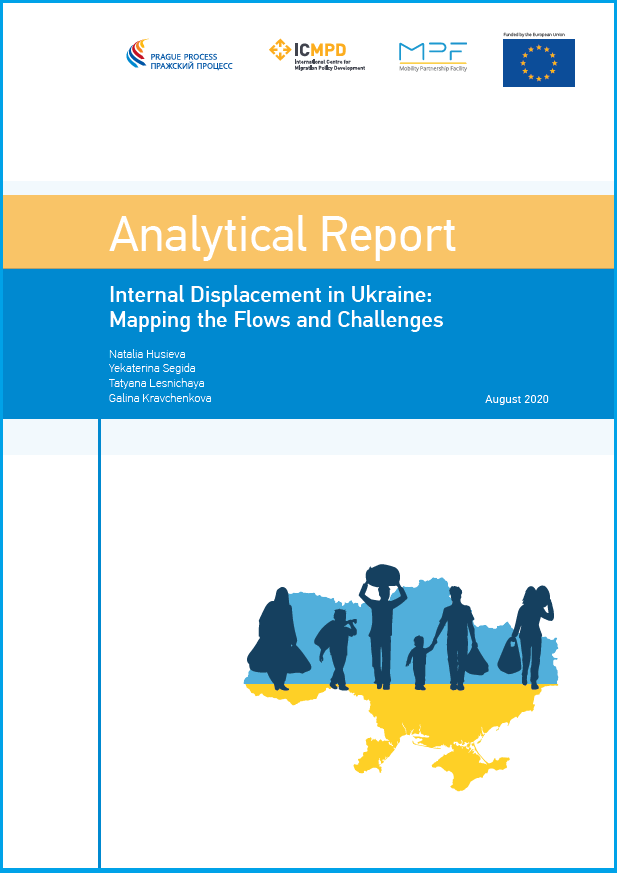Internal Displacement in Ukraine: Mapping the Flows and Challenges
7 September 2020
Reports
Since 2014, Ukraine has faced an armed conflict resulting in a humanitarian crisis and the internal displacement of large parts of its population. Their situation remains an emergency until today. The number of internally displaced persons (IDPs), which currently amounts to over 700,000 persons (or 1,5 Mio. according to the Ukrainian official sources) makes Ukraine the country with the most IDPs in Europe. The large-scale human displacement brought severe challenges, ranging from the socio-economic integration of IDPs in their host communities to their political, legal or psychological needs.
This report provides a time-space analysis of the forced internal displacement in the period 2014-2018. It presents the most imminent challenges faced by the IDPs and proposes possible solutions, taking into account the specific characteristics of individual regions as well as international good practices and lessons learned. Thereafter, the report proposes various measures aimed at developing and strengthening the resilience, independence and self-reliance of IDPs in Ukraine. Lastly, the report substantiates policy recommendations aimed at facilitating the adaptation and integration of IDPs into local communities.

